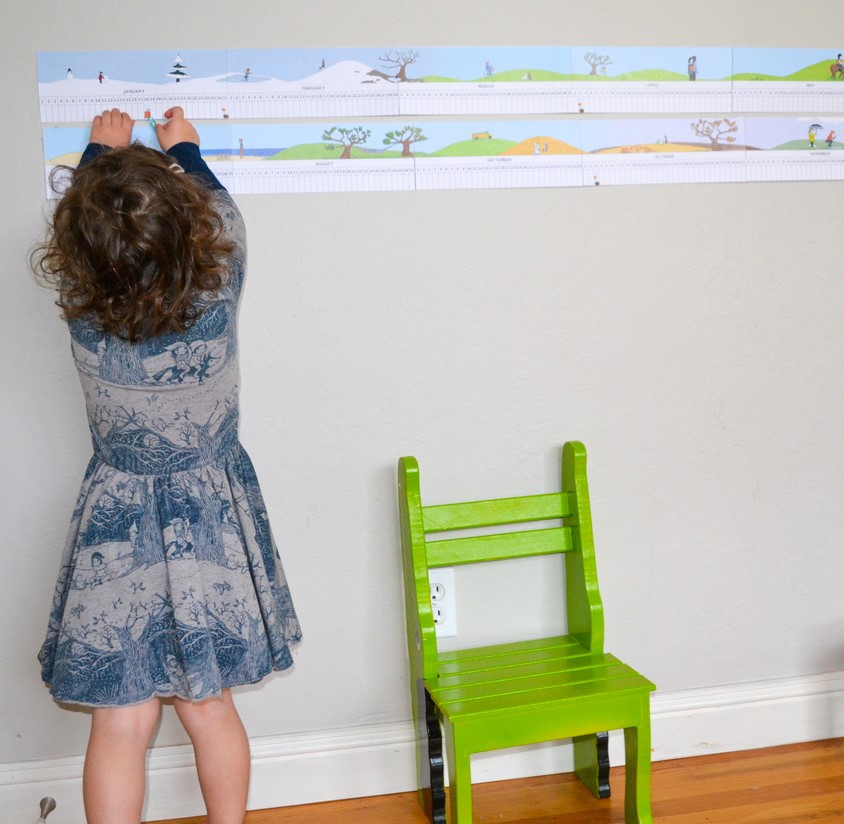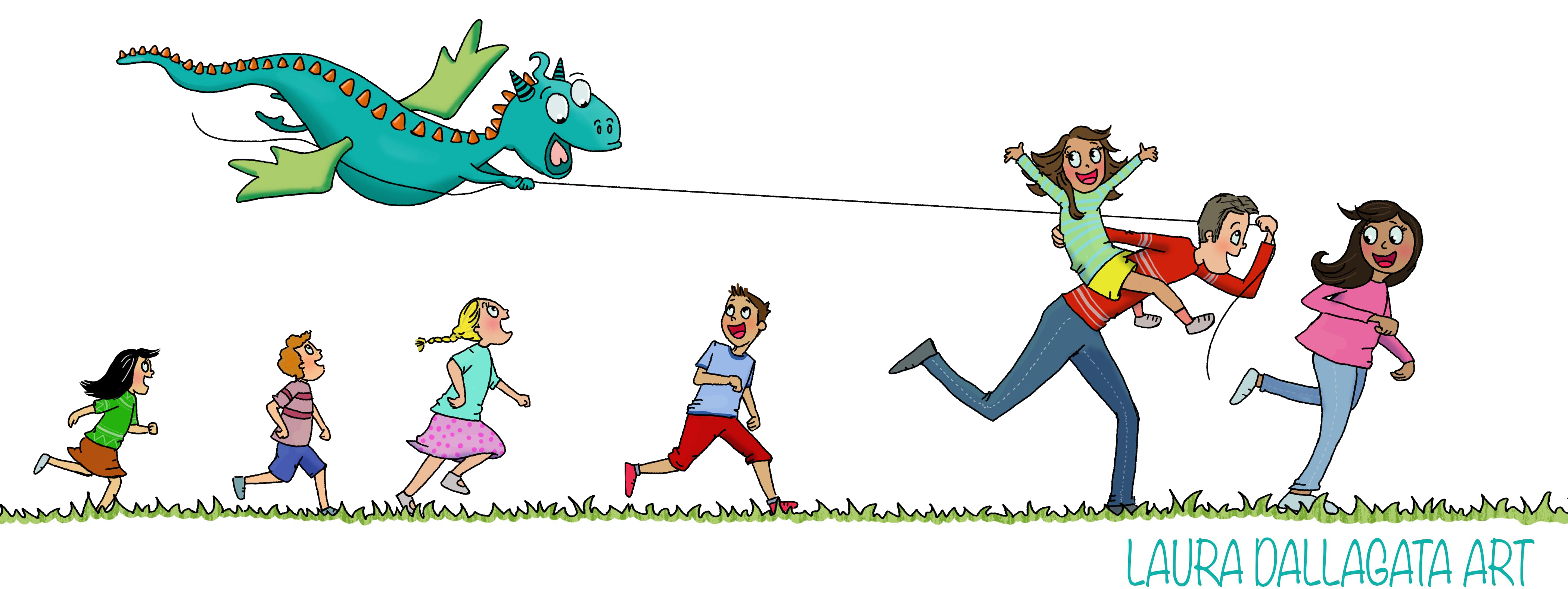
Infants and Toddlers (0-2): Time is perceived mostly through repetition of actions and routines
Pre-schoolers (3-4): Progressively understand the time concepts of “before” and “after”
Kindergarteners (5-6): Begin to understand that some events occur weekly, monthly and yearly
The concept and perception of time is very abstract for young children. It’s a notion that builds up slowly and progressively, by experiencing it.
Studies show that even infants develop a sense of time through predictive patterns like sleeping and feeding. Babies and young toddlers’ understanding of time develops through routines. They expect milk, bath and snuggle before bedtime. Therefore, the first step you can take as parents to help your children grasp this abstract concept is through consistent daily routines.
Preschoolers’ understanding of time often appears funny to adults. It is common to hear children say something like «Yesterday, I was dressed as a dinosaur for Halloween», while you are already in March, or tell you «Tomorrow for my birthday we will eat cake», when their next candles are still weeks away! In fact, this shows your child is starting to understand the concept of “past” and “future” in relation to the “present”. As a parent, we can simply respond by rephrasing things like: «Yes you had presents a few months back from Santa.» Your kids will understand that concept in the future, maybe in a few months or a year but it’s tomorrow according to them!
Between 5 and 6 years old, children learn that events occur at a specific time each day and week, then progressively each year. This is a great time to introduce the Fly Little Dragon Linear Wall Calendar to help your children develop a deeper understanding of time by recording important events and observing their sequence spatially. Indeed, it allows children to represent time, which is highly abstract through a very concrete medium with a spatial representation. It helps them visualize the present, past and future and see how they relate to one another.
Additionally, there are two ways to perceive and represent time. Prospective representation is your perception of time as you are living it, in the moment. Retrospective representation is what you remember from it.
Children and adults differ in both of those representations of time. Neuroscientists have shown that children’s prospective perception of time (how fast or slow things seem to be as we live them) actually feels longer to them than adults. This is because their neural transmission is slower than adults since their brains’ connectivity is not fully developed yet. So, if your 5 years-old tells you brushing teeth takes too long, it might actually feel that way to him/her. However, by age 10, there is no longer much difference with adults, so your preteen might be exaggerating sometimes!
As we get older, time seems to be passing by faster, but why? Some research suggests that our perception of time is actively created by our experiences. So while we’re on a new vacation, a week may feel like flying by while we’re experiencing it, but in retrospect, it feels like it lasted longer. Psychologist researcher and writer Claudia Hammond has coined the term “Holiday Paradox”. This phenomenon happens because our brain encodes novel experiences into memory rather than familiar routine ones. So when we look back at our vacation, we have encoded more events and our retrospective feel about that time seems to have lasted longer in hindsight. As we get older, we are exposed to less and less new learnings and environments, which explains why it feels like time is going by faster. So the best way to feel like your life is not getting by so quickly is to engage in new activities, learn new skills and visit new places!
References
– Droit-Volet, S. (2013). Time Perception in Children: A Neurodevelopmental Approach. Neuropsychologia. 51. 220–234. 10.1016/j.neuropsychologia.2012.09.023.
– Hammond, C. (2013). Harper Perennial. Time Warped: Unlocking the Mysteries of Time Perception
– Kopec, C. D., & Brody, C. D. (2010). Human performance on the temporal bisection task. Brain and cognition, 74(3), 262–272. doi:10.1016/j.bandc.2010.08.006
Mathilde is a Doctor of neurosciences who specialized on the impact of playing educational games on children’s cognition during her research. She also has a strong interest in positive discipline and is a certified educator. She lives in California with her husband and her three children who provide her constant opportunities for learning in the parenting department!
